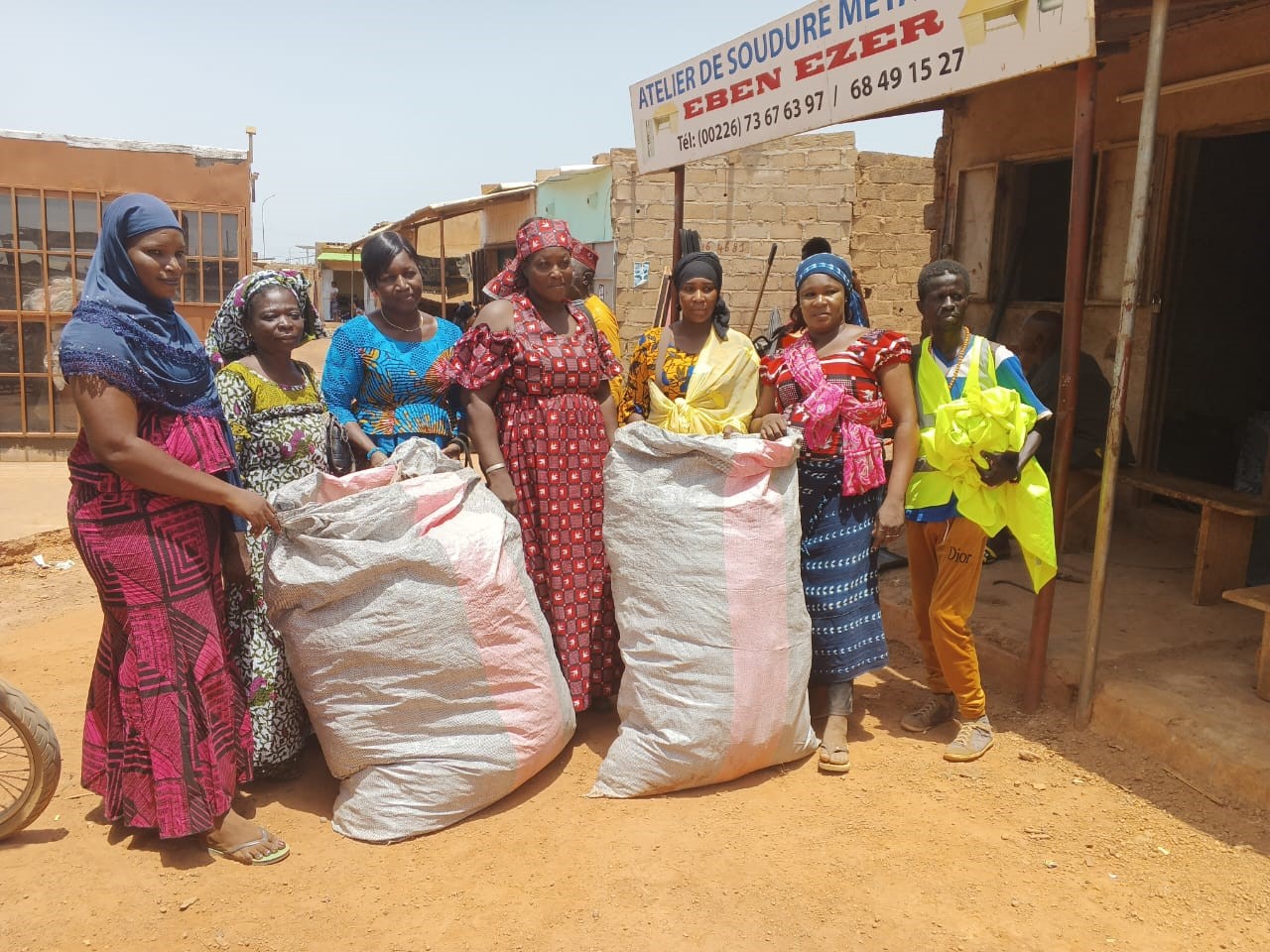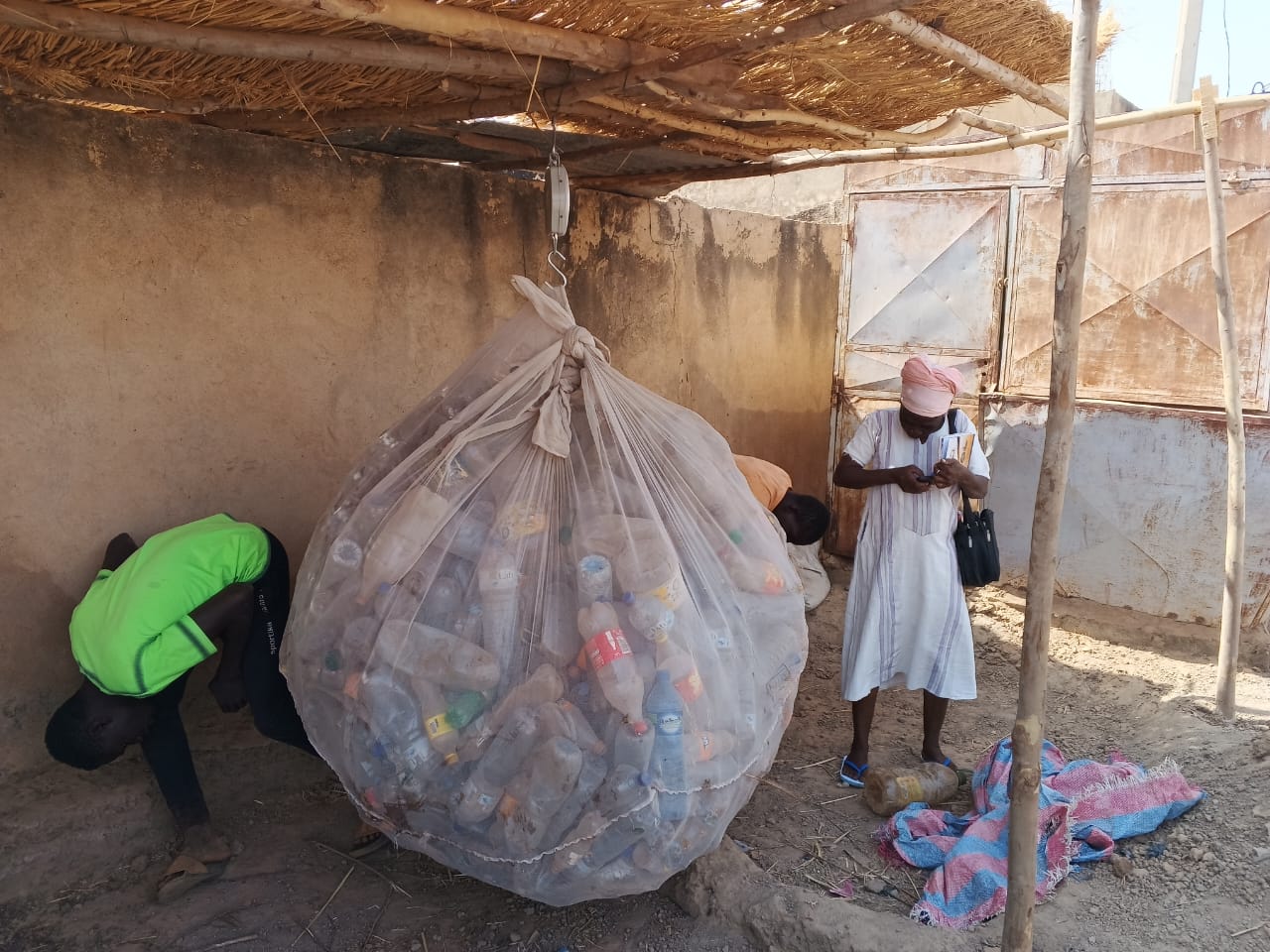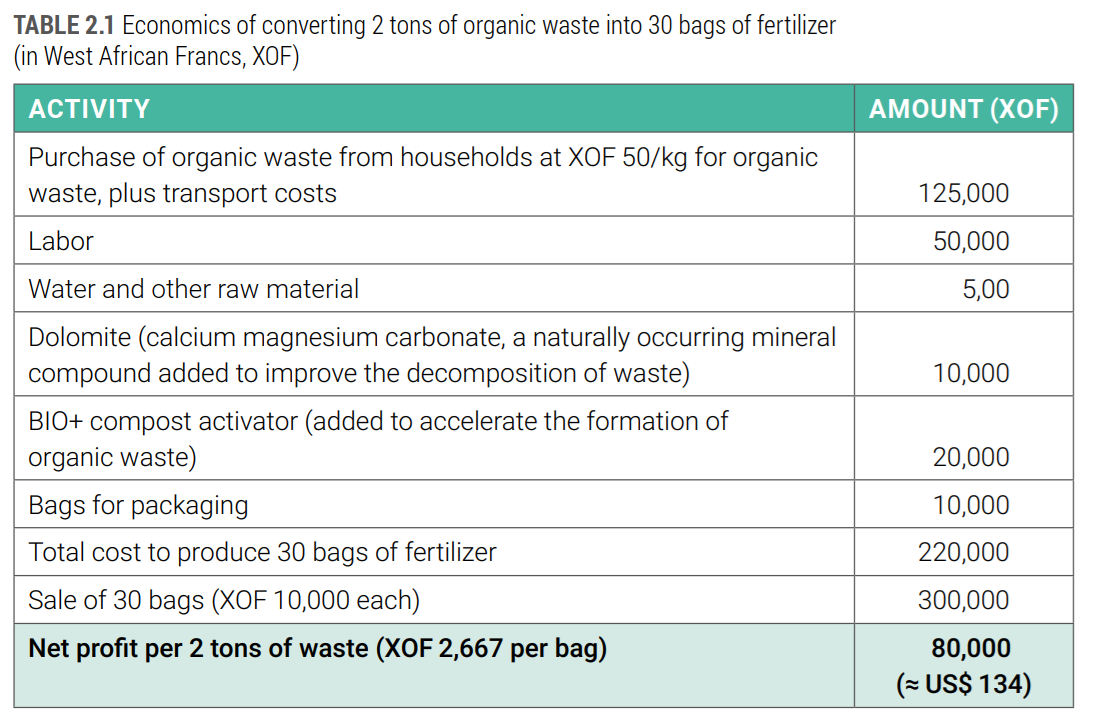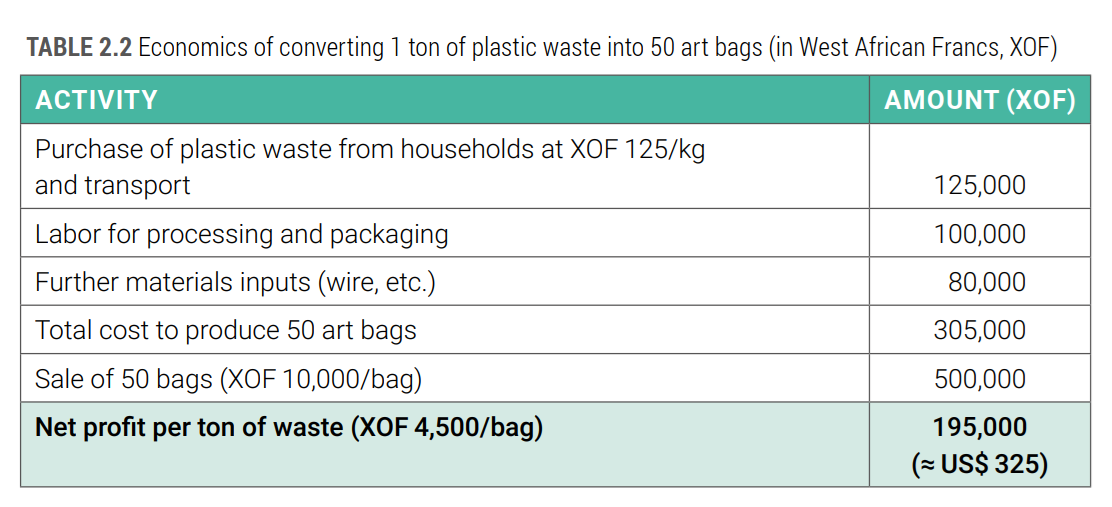THE STORY OF THE SONGTAABA ASSOCIATION
Devolve decision making
Address structural inequalities
Invest in local capabilities
Collaborative action and investment
Photo credit: Songtaaba Association
As narrated by Omer Jeanin Wendkaato Ilboudo, President, Songtaaba Association
In Moore, the language of the Mossi of Burkina Faso, song taaba means “mutual aid”. The Songtaaba Association in Ouagadougou, the capital city, is a local collective comprised mainly of women. Fed up with the fast-growing piles of garbage where they live, members of the association decided to take matters into their own hands. They started an initiative to reclaim garbage from the streets and convert it into sustainable products for local markets – and by so doing, create stable jobs for those most in need
The lack of waste management systems in the cities of Burkina Faso poses a serious problem, causing flooding, water stagnation, and waterborne diseases. Climate change, with more intense rainfall events and flooding risks, makes the situation worse. The uncontrolled dumping of waste, especially plastic bags with a lifespan of 400-plus years, is causing a chain of environmental problems. This waste makes the soil impermeable, so run-off water cannot infiltrate the soil. As a result, crops run out of water and agricultural yields are compromised. Thousands of animals die after swallowing plastic bags, with considerable negative impacts on the economy. The decomposition of waste releases methane (a potent greenhouse gas), as well as toxic elements (such as heavy metals) that contaminate soil and groundwater.
 When intense rainfall arrives, the plastic pollution clogs drains and further prevents the water from infiltrating the ground, making flooding worse.
When intense rainfall arrives, the plastic pollution clogs drains and further prevents the water from infiltrating the ground, making flooding worse.
With the demand for consumer goods rising in Burkina Faso, the per capita rate of waste production is also rising fast. At present, residents of Ouagadougou produce around a kilogram of waste per person per day.45 The collection and disposal of household waste is becoming a constant preoccupation for municipal authorities. The sanitation, transfer, and disposal services involved in urban waste collection are inadequate. In 2020, the city of Ouagadougou, with a population of around three million, produced 680,000 tons of garbage. This is three times more than 20 years ago and around a third of this waste is plastic.
Despite current efforts, the municipality and private cleaning companies are only able to collect half of the waste produced in Ouagadougou. The large quantity of uncollected waste poses a danger to the environment and people, as piles of rubbish continue to invade the streets.
 The collected garbage is not recycled in any significant way – it is simply moved to landfill sites. These landfills were once located outside city limits. Now the city has sprawled, and the landfills are on the city’s outskirts – lying uncovered and without any protective measures. Against the backdrop of the country’s economic crisis, the search is on for a costeffective and efficient approach to waste management through recycling and disposal.
The collected garbage is not recycled in any significant way – it is simply moved to landfill sites. These landfills were once located outside city limits. Now the city has sprawled, and the landfills are on the city’s outskirts – lying uncovered and without any protective measures. Against the backdrop of the country’s economic crisis, the search is on for a costeffective and efficient approach to waste management through recycling and disposal.
In this context, the Songtaaba Association devised the YOLEMDE method to reclaim useful materials from household waste streams, and then reuse and recycle them into useful and marketable products. The YOLEMDE method recycles organic waste into fertilizer and plastic waste into utilitarian objects. This addresses waste collection at the source – thereby reducing pollutants and waste that worsen flooding during heavy rain. It creates value for local workers in the circular economy.
The association also has a social enterprise function. Some members come to the Songtaaba Association under duress and feeling rejected by society because of unwanted pregnancies, internal displacement, religious intolerance, or such desperate poverty that they have been driven to beg in the street. The Songtaaba Association provides a route out of poverty through gainful employment and psychosocial support to its members.
Social Enterprise Launches Ouagadougou into the Circular Economy
The YOLEMDE method relies on incentivizing householders to separate their waste into biological and non-biological waste streams. Then, members of the association convert the biological wastes into compost for urban gardening and agriculture, and they craft the plastics into practical products, such as laptop bags46 and digital tablet covers.
Since the launch of the project in 2022, the Songtaaba Association has developed ten products, utilizing more than 100 tons of waste, which it has converted into commercial sales (to July 2023). These activities have created ten new permanent jobs in waste management and organic fertilizer production, and more than 40 direct jobs in the manufacture of recycled plastic products.
Women’s economic empowerment is a particular focus – and the economics are favorable. Producers can make a net income of 30% per ton from fertilizer sales (with the exact sales prices determined by the Burkina Faso National Soil Office product rating). Net income is 50% for recycled plastic products.
There are varying estimates of the composition of waste in the Ouagadougou area: perhaps based on which streams are measured (those that enter landfills formally, compared to estimates of all waste), as well as differences in the municipal boundaries or catchment used. According to one estimate, 22% of the waste produced by the city is food waste, 5% plastics, 6% paper, and 67% “other materials”. Another estimate put the city’s waste volume at 922,000 tons per year – 2,500 tons of waste per day – of which plastic waste is 14%, or 356 tons per day.
Economics of the Process 
 The enterprise finances ten direct and around 40 indirect jobs. Of the ten direct jobs created, each worker earns on average XOF 50,000 per month. Profits are ploughed back into the Songtaaba Association.
The enterprise finances ten direct and around 40 indirect jobs. Of the ten direct jobs created, each worker earns on average XOF 50,000 per month. Profits are ploughed back into the Songtaaba Association.
Outcomes of the Recycling Enterprise
The Songtaaba Association’s current recycling throughput is ten tons of waste per month, with the goal of scaling up to 100 tons per month by late 2024. Their activities are monitored by the mayor of the district and his staff, together with Songtaaba’s environmental monitoring staff. They share the following lessons and results so far:
Waste generation is addressed at the source, where the waste is produced. Residents are trained through the organization of sanitation days, as well as online and radio campaigns. The involvement of local chiefdoms in promoting awareness and markets for products is helpful. Consequently, households are gaining an improved understanding of the importance of good waste management practices. They are motivated by the opportunity to earn an income by selling their waste, but also by the improvement they see around them when waste is removed and flood risks are reduced.
Their clients – the farmers and gardeners who buy their fertilizer – express their satisfaction with using organic fertilizers for food production instead of chemical fertilizers. The sale and use of organic fertilizers is already showing “downstream” environmental benefits by displacing chemical fertilizer use. The Songtaaba Association has partnered with provincial agricultural and water authorities to trial organic fertilizer as a timesaving, efficient means of fertilizing fields and kitchen gardens. They have been experimenting with reducing the proportion of chemical fertilizers used, with the aim of phasing out chemical fertilizers completely in future years.
The recycling of plastic is gaining local people’s attention as a way of rescuing valuable materials from waste heaps. The Songtaaba Association believes that their locally led plastic recycling venture is slowly driving people’s behaviors from a purely consumer economy towards a more sustainable economy
The Songtaaba Association has further projects in development with the country’s renewable energy and energy efficiency agency, the Agence Nationale Des Energie Renouvelables et de l’Éfficacité Énergetique, to establish a solar thermal pyrolysis unit to transform plastic waste, as well as waste oil, into household gas and fuel.
How Challenges Are Addressed
The principal challenges are the following:
Considerable work is involved in sorting waste into appropriate, usable streams, due to the mixing of waste streams at source by households and businesses.
There is a lack of capital equipment for converting waste materials into useful products, including the specialist equipment required for combining non-heavy metals and electrical waste into useful raw materials for manufacturing use.
Worker training is required on diversified forms of recycling and reuse, such as with glass bottles and windows, to enable even more waste reclamation and further reduce landfill volumes.
There is a lack of adequate physical space to organize plastic and organic materials recycling, and to conduct experiments on industrial waste and wastewater.
To face these challenges, the Songtaaba Association is working with the resources at hand – its existing workforce, equipment, product line, and abundant waste material – to provide proof of concept for its enterprise model. The association has already demonstrated convincingly the demand and financial viability for its products, and the environmental gains of removing solid waste from the urban environment and processing it into eco-friendly fertilizers and consumer goods. It is now seeking investors to grow the initiative.